On May 11, 2025, the whole world turned its attention again to Vatican City. The newly elected Pope Leo XIV was to deliver his first Sunday message. In the end, he didn’t disappoint. His words were soothing and strengthening. More interestingly, they cast our minds back to an incredible World War I moment.
During the First World War, troops suspended combat for Christmas. Popularly known as the Christmas Truce, its major highlight was when opposing British and German soldiers dropped their weapons to share love and fellowship. In his speech, Pope Leo brought that historic atmosphere back to life.
The Pope urged an end to every war across the globe. He called every leader to lay grievances aside for “just and lasting peace.” If this could happen, it would be a glorious recreation of the Christmas Truce of World War I. But how convincing and influential could the pope’s words be?
Pope Leo’s Message to the World
Standing on the balcony of the legendary St. Peter’s Basilica, Pope Leo knew that his next words would be crucial. They would make history and make a big difference in solidifying the faith of the over one billion Catholics worldwide. Equally as importantly, they could shape the world.
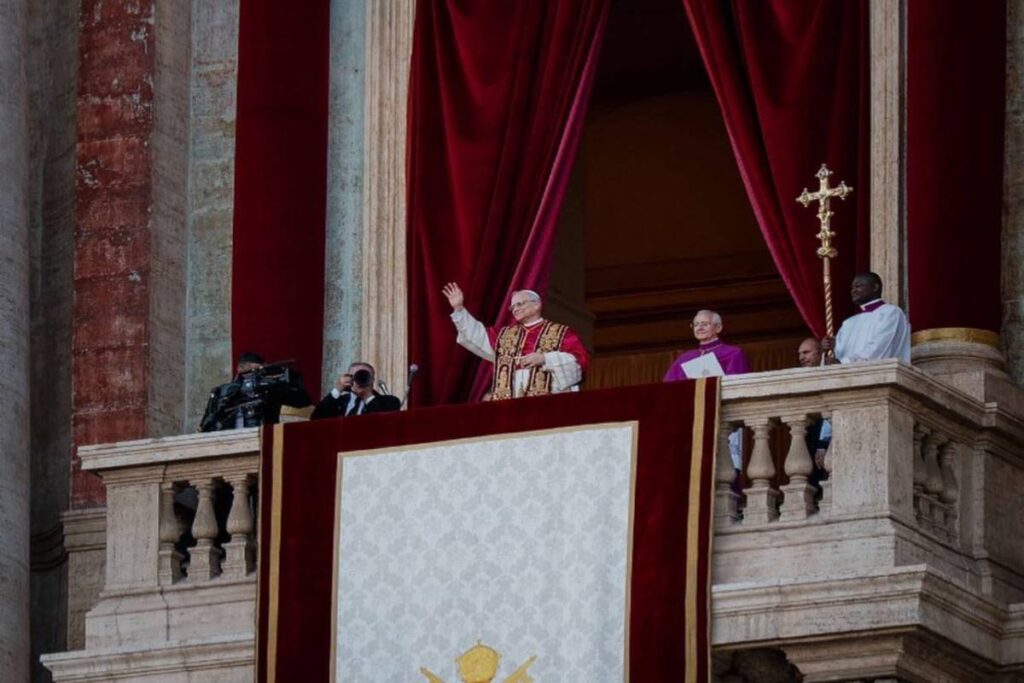
In his speech, he announced to the over 100,000 people gathered at the Vatican grounds that he was on a peace mission. Speaking in native Italian, he started by encouraging brotherly love amongst individuals, referencing the wishes of his predecessor, the late former Pope.
“Let us take up the invitation that Pope Francis left us in his Message for today: the invitation to welcome and accompany young people,” he stated. “And let us ask our heavenly Father to assist us in living in service to one another,” he continued.
His attention soon shifted to the global scene. He addressed the current global wars and called for an end to hostilities. “In today’s dramatic scenario of a third world war being fought piecemeal, as Pope Francis said, I too turn to the world’s leaders with an ever timely appeal: never again war!” he urged.
To ensure his message was received, he specifically mentioned the major conflicts worldwide and called for peace and a ceasefire in the Russia-Ukraine war. Pope Leo also addressed warring parties in the Israel-Hamas war. He appealed for the release of hostages held by Hamas while campaigning for adequate humanitarian aid for Gaza and its “exhausted civilian population.”
The pope mentioned the fresh war between India and Pakistan. “I welcomed with satisfaction the announcement of the ceasefire between India and Pakistan, and I hope that through the upcoming negotiations we can soon reach a lasting agreement,” he stated.
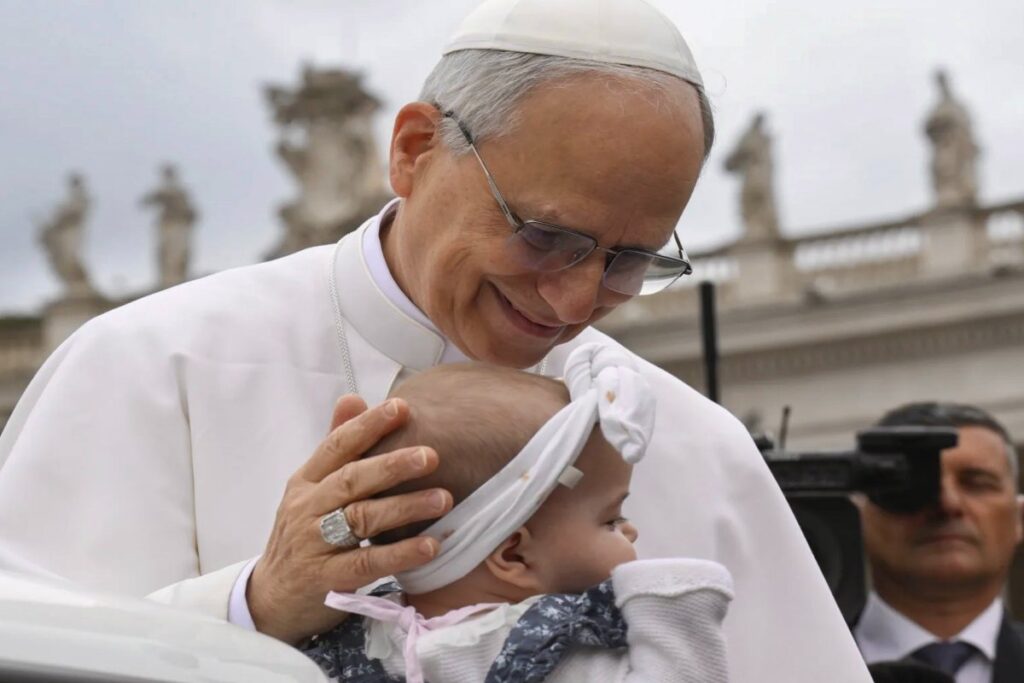
Afterward, he surprised the crowd by singing the “Regina Caeli” or “Queen of Heaven” prayer—a popular prayer for the Easter season. It is said in honour of the Virgin Mary, a prominent symbol of peace for the Catholic Church.
To Catholics, Mary is regarded as the “Queen of Peace” – a symbol of humility, compassion, and intercession. Little wonder that these are primary ingredients for promoting peaceful co-existence.
Immediately after he concluded his address, shouts of “viva il papa” or “long live the Pope” filled the air. It was clear that he had ignited the faith of the thousands of Catholics standing before St. Peter’s Basilica. The crowd showed how proud they were of their new spiritual head as they waved flags of various nations in excitement.
Many wondered, “Did the Pope just end wars?” It is hard to tell whether the Pope’s call for peace and a ceasefire will yield fruit. However, days after his address, social media users credited his speech with lowering the global war temperature.
But one thing is certain: religion has contributed to the suspension of conflict in the past. We don’t have to travel too far into time. A worthy example awaits at the beginning of the 19th century and in the thick of the First World War.
How Christmas Inspired a Truce During World War I
One of the most fascinating war stories ever told wasn’t a story of combat and conquest. It was a tale of peace. It was a historic story that has continued trickling down from generation to generation. It’s the story of a shocking Christmas ceasefire.
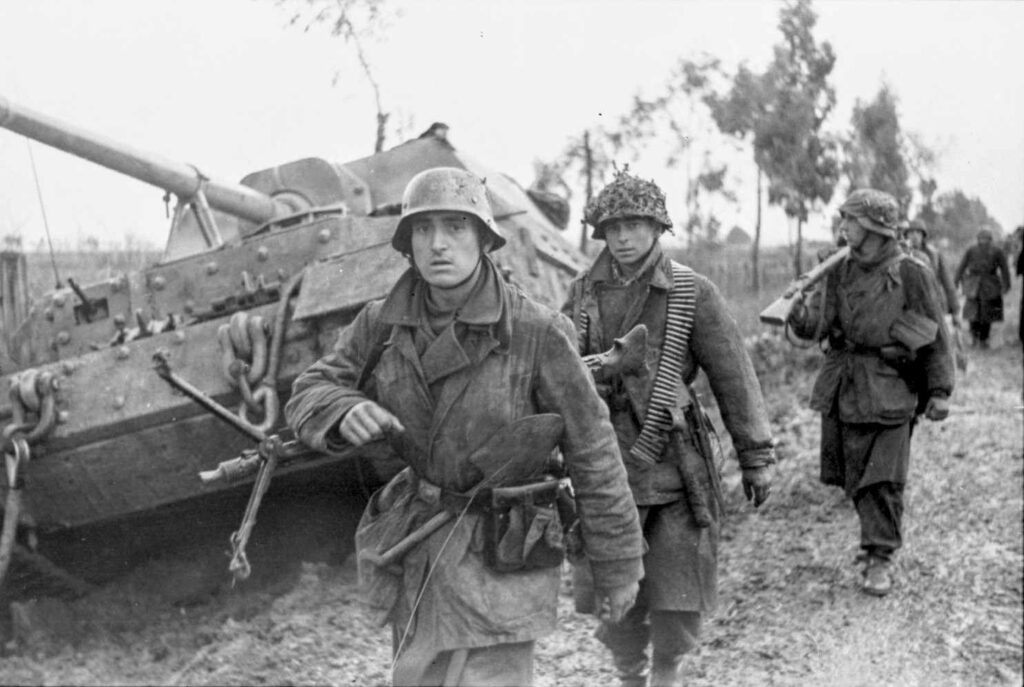
It took place on Christmas Eve of 1914. On the Western front of the First World War, British and German soldiers fought, firing deadly rounds at each other from their muddy trenches.
As the story went, the cold weather humbled both sides of the battle. As British soldiers wrapped their arms around themselves in a desperate attempt to keep warm, they heard strange sounds coming from the German end. As they listened more closely, they heard the sounds of the German soldiers singing carols.
It was a doubtful activity for soldiers who were short on hope. They had endured many nights of little sleep in narrow and wet trenches, knowing that death was the only escape. But as Christmas drew closer, the Germans saw a good reason to be joyful and to suspend the fighting.
Soon afterward, the joyful mood spread to the British side. British soldiers began to sing along. Then, a German soldier shouted an invitation to them. “Come over here,” the German said in English with a heavy German accent.
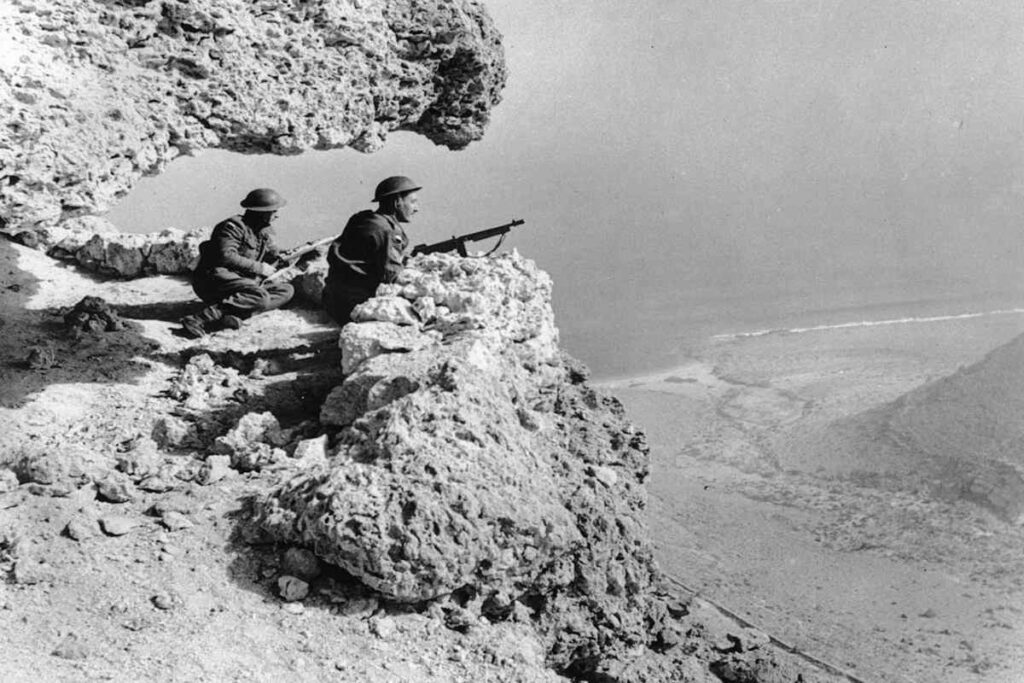
One British soldier who remained suspicious proposed a deal: “You come half-way. I come half-way,” he said. In an unexpected move, the Germans came out of their hiding and advanced towards the British soldiers, who also began to move closer. It was a historical moment full of lessons for generations unborn.
Enemies Became Friends
Soon, German and British soldiers were within reach of each other on the ground between their positions. This space would thereafter be called “No Man’s Land.” The soldiers began to exchange greetings and gifts. Tobacco and wine went round, and a party started.
Interestingly, the same Christmas Truce episode played out on several other fronts in the war. Other warring troops in different war sections also called a truce for Christmas. For many of those soldiers, these few hours of peace were the best moments of their lives for a while.
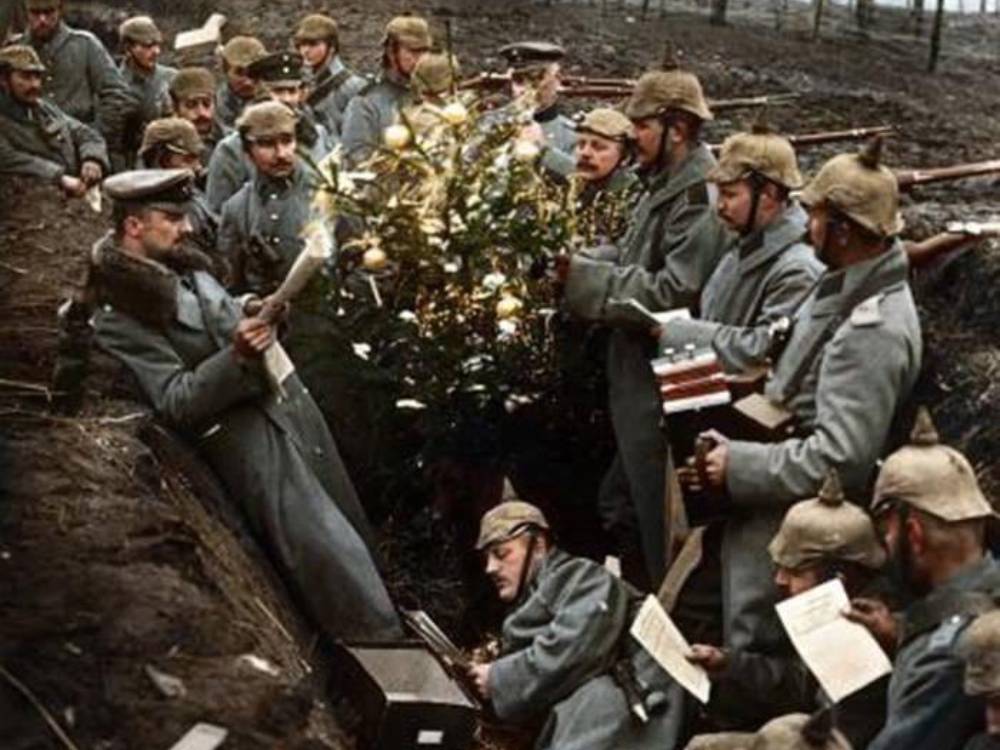
There were accounts of German soldiers lighting up Christmas trees in their camps in a celebratory mood. One soldier narrated how a British soldier erected a makeshift barbershop where he collected cigarettes as payment for haircuts.
“I shook hands with some of them, and they gave us cigarettes and cigars. We did not fire that day, and everything was so quiet it seemed like a dream,” said one British soldier as he described the atmosphere. If not for Christmas, some of the soldiers would have been killed by the same people with whom they now rejoiced.
The hallmark of this truce was yet to come. In an unforgettable moment that continues to shock the world, German and British troops enjoyed themselves with a game of soccer. They made crude soccer balls and engaged in a friendly match with the icy ground as their pitch.
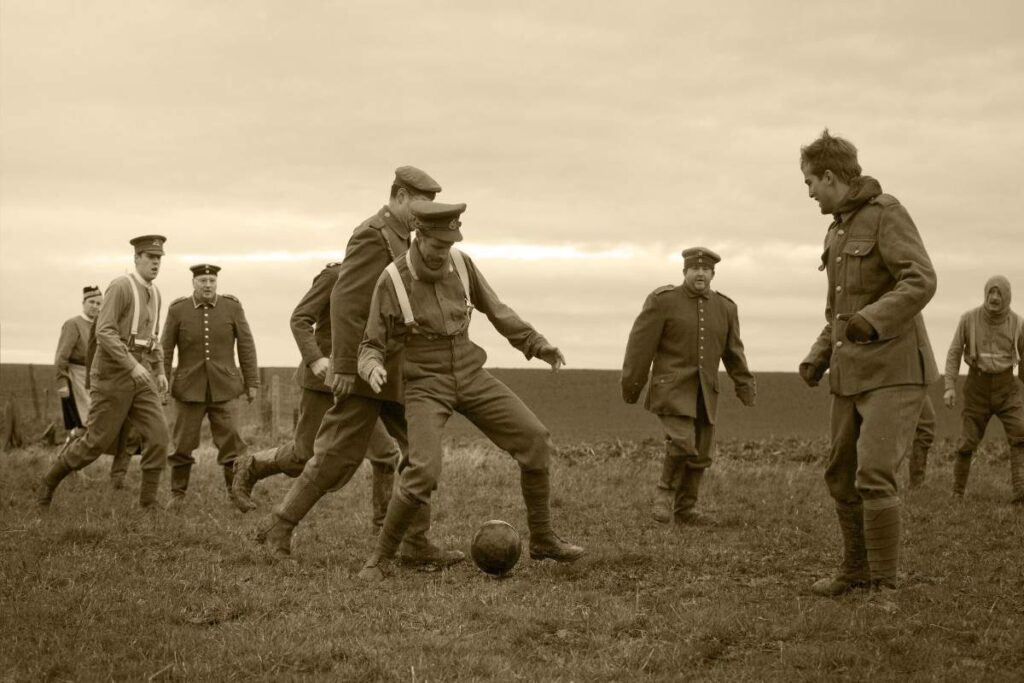
One soldier later described the experience. “The ball appeared from somewhere, I don’t know where,” he stated. “They made up some goals and one fellow went in goal and then it was just a general kick-about. I should think there were about a couple of hundred taking part.”
Opposition to Peace
Not every soldier participated in the truce. Some others, including the top soldiers on both sides, frowned at the temporary halt in hostilities. They feared the truce could trigger a drop in commitment to the war.
There are records of Adolf Hitler scolding some German troops who participated in the truce. “Such a thing should not happen in wartime. Have you no German sense of honor left?” he reportedly thundered at them.
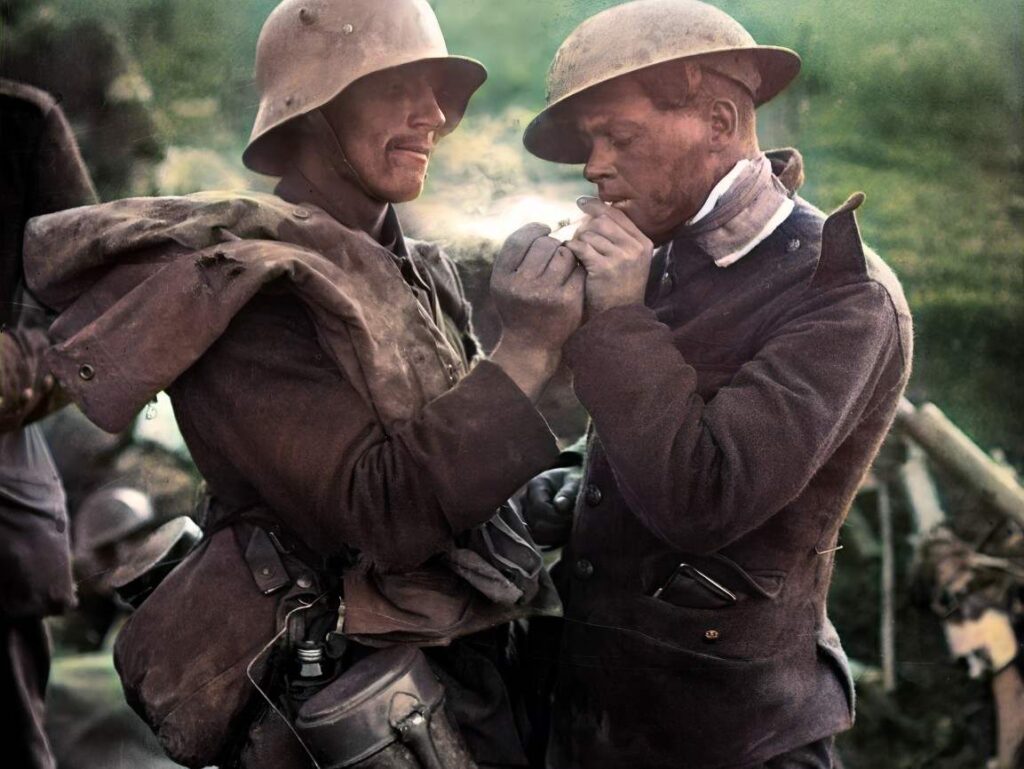
Despite senior officers’ heavy frowns and moves to discourage any similar future action, soldiers were already inspired by the truce to stop. Many reports of warring sides observe temporary ceasefires afterward to retrieve their dead and readjust their trenches.
Papal Interventions
Just like in 2025, the words of a Pope encouraged peace during World War I. On December 7, 1914, just weeks before the Christmas Truce happened, Pope Benedict had urged leaders to sheath their swords and declare an end to the hostilities. Although his words seemed to have fallen on deaf ears, they were a seed.
That seed began to sprout on Christmas Eve with the singing of carols by the German troops. As it turned out, a plea ignored by senior soldiers was heeded by junior troops at the battlefront. Many believe that the Pope’s words played a spiritual role in the Christmas Truce.
The same thinking has resurrected with Pope Leo’s first Sunday message. Even though his cry for peace is likely to be ignored by world leaders, his words could be a spiritual seed that could germinate in the future.
Catholics and even non-catholics believe in the power of papal utterances. If history is anything to go by, another unexpected peace move awaits the world. Pope Leo’s calls for a ceasefire would make a difference, no matter how long it takes. One that would be glaring enough for the world to see it.

